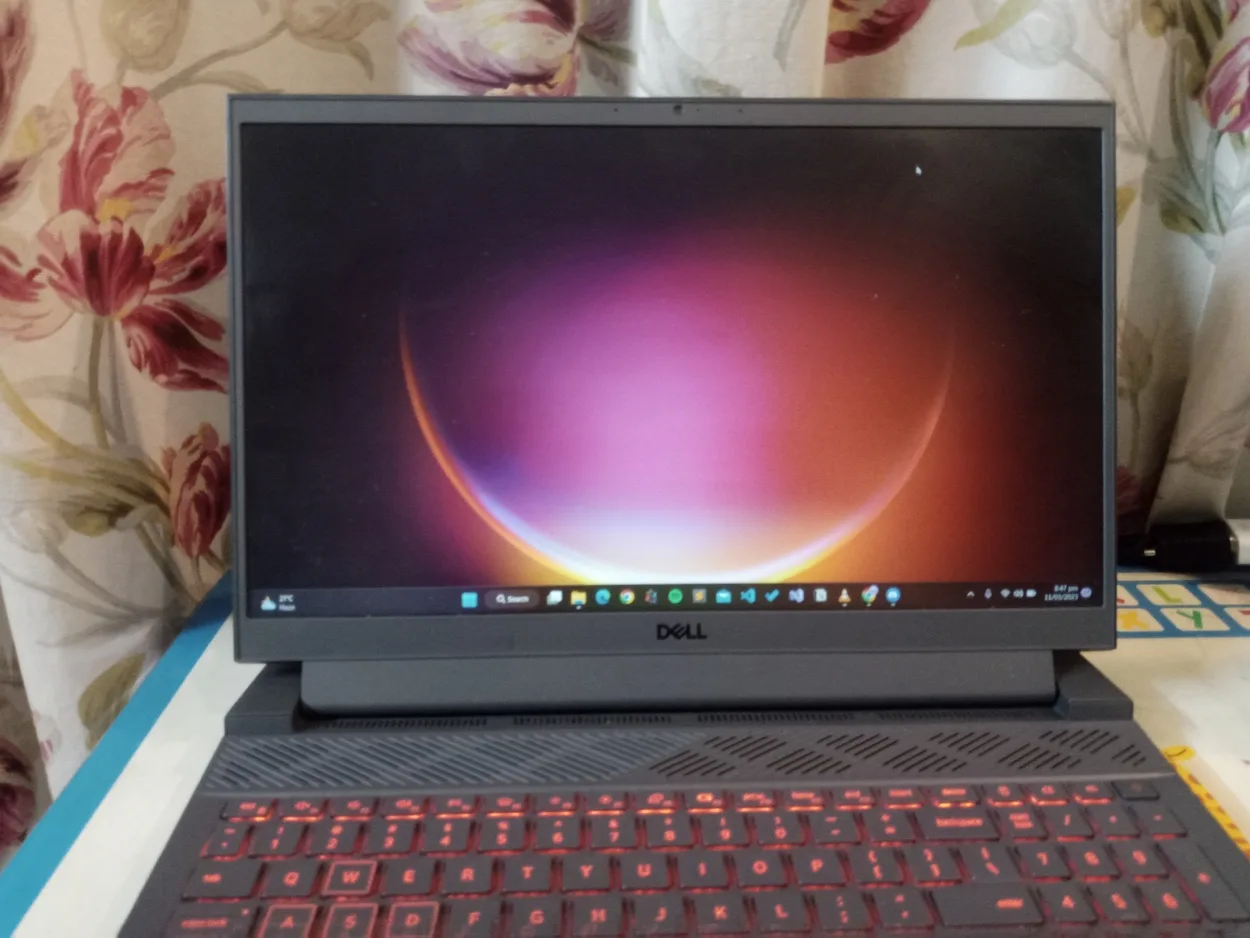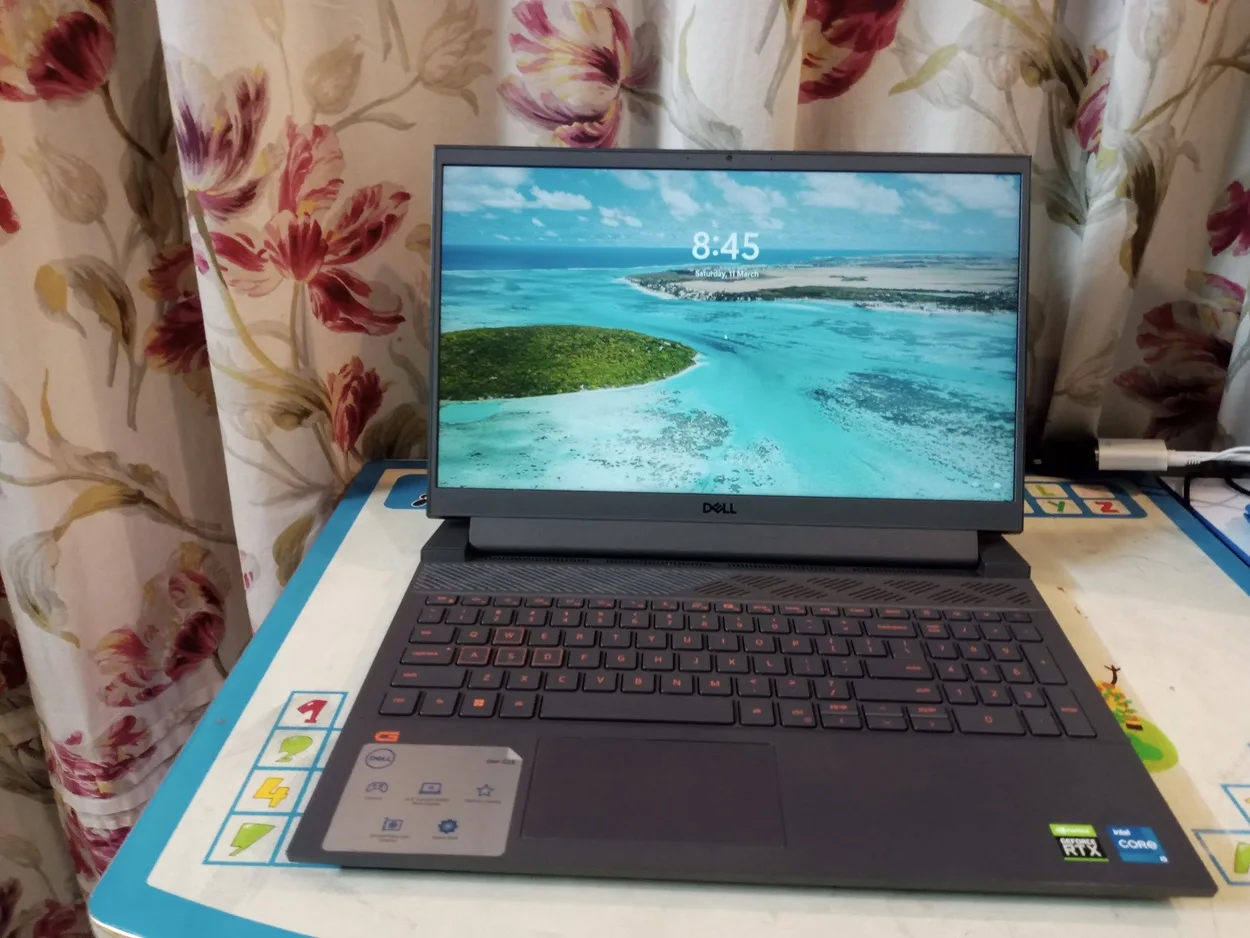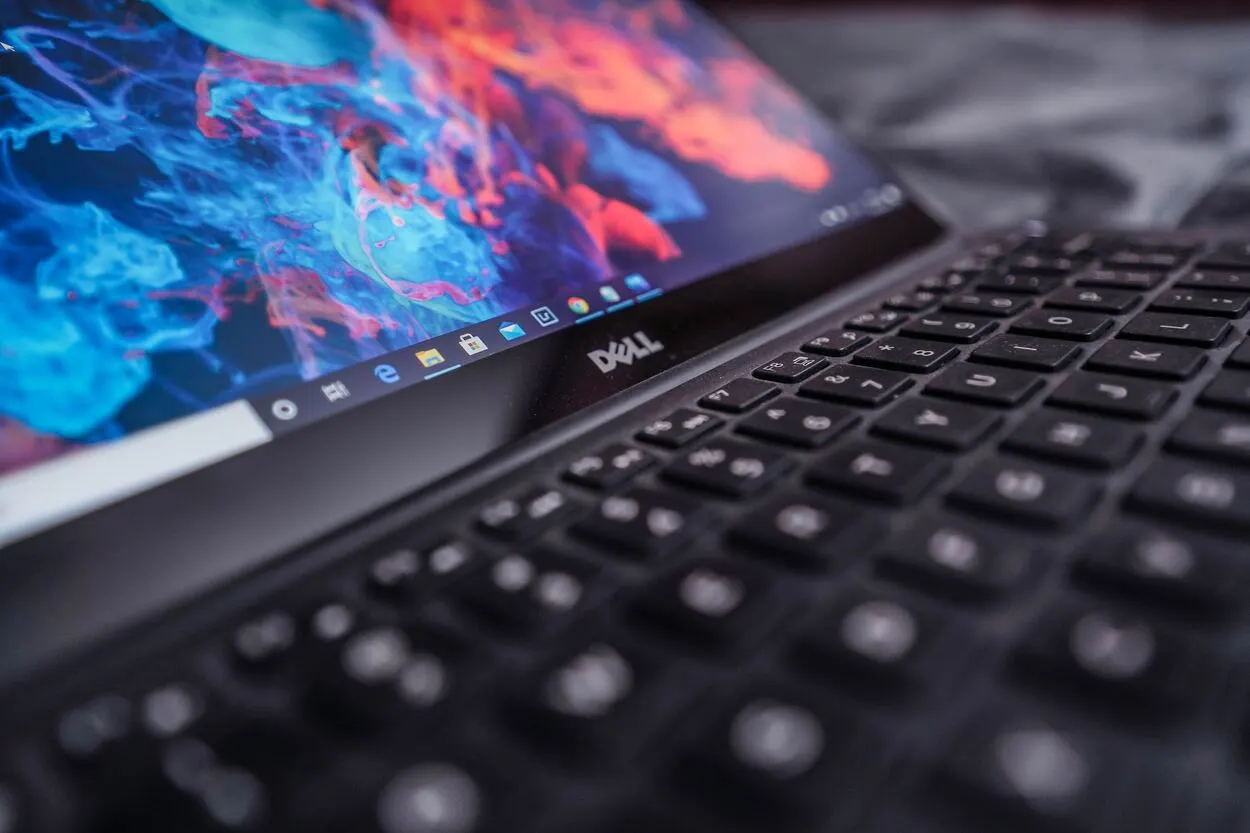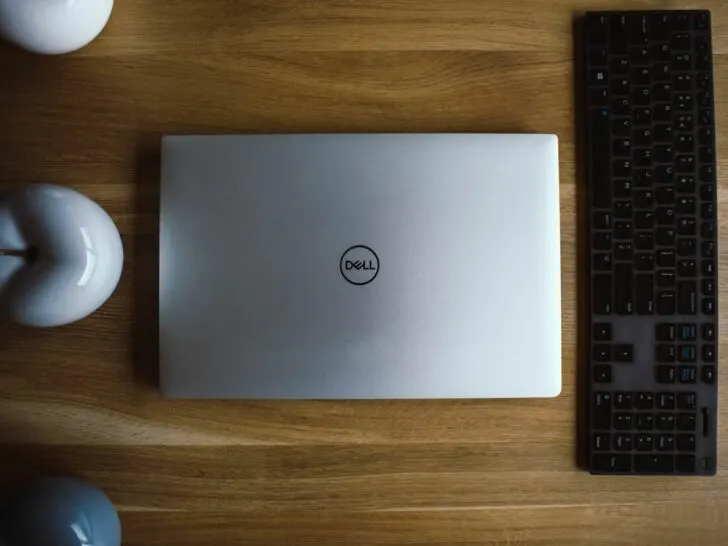One of the several factors prospective purchasers must consider is biometric security, a function increasingly seen in contemporary laptops. The fingerprint sensor is one example of this technology, offering consumers a quick and safe way to authenticate.
An optional fingerprint scanner built into the power button is available for some Dell G15 variants. This enables you to log in to Windows Hello using your fingerprint securely.
In this post, we go into the details of the security features of the Dell G15, examining whether or not this powerful gaming machine has a fingerprint sensor and how it meets the needs of today’s tech-savvy consumers.
Come along as we explore the gaming laptop market’s biometric security environment and peel back the layers of innovation found in the Dell G15.

| Section Overview | Description |
|---|---|
| The Marvelous World of Fingerprint Sensors | An introduction to the fascinating world of fingerprint sensors, highlighting their growing popularity and usage in various devices. It sets the stage for the rest of the article. |
| Say Goodbye to Passwords | Explores the drawbacks of traditional passwords and emphasizes the convenience and security offered by fingerprint sensors as a modern authentication method. It discusses how fingerprint sensors are revolutionizing the way we access our devices. |
| The Benefits of Using a Fingerprint Sensor | Dives deep into the advantages and features of using a fingerprint sensor, including enhanced security, time-saving benefits, easy setup and use, and potential alternative uses. It provides a comprehensive overview of why fingerprint sensors are becoming the go-to choice for users. |
By continuing to use this website you agree to our Terms of Use. If you don't agree to our Terms, you are not allowed to continue using this website.
The Marvelous World of Fingerprint Sensors
Definition and Working Mechanism of Fingerprint Sensors
Picture this: you gently press your fingertip against a sleek, futuristic surface, and voila – your device magically unlocks.
No passwords, no PINs. Just the power of your one-of-a-kind prints. Welcome to the world of fingerprint sensors, where your touch becomes the key to accessing your digital domain.
Different Types of Fingerprint Sensors Revealed
There’s more variety in the vast landscape of fingerprint sensors than you might imagine. Here are some of the star players that you’ll encounter:
Optical Sensors
- Shining a light on the uniqueness of your prints
- Capturing the ridge patterns with precision and finesse
Capacitive Sensors
- Channeling the electrical vibes of your fingertips
- Mapping the distinct capacitance of your skin’s ridges
Ultrasonic Sensors
- Creating a detailed 3D image of your finger’s topography
- Riding the waves of ultrasonic technology
The Fingerprint Sensor Advantages
Why settle for mundane passwords or forgettable PINs when you can embrace the fingerprint sensor revolution? Here’s why these digital detectives hold a special place in our tech-loving hearts:
- Enhanced Security: Your fingerprints are as unique as a unicorn’s horn, making it nearly impossible for impostors to replicate. Say goodbye to security breaches!
- Seamless Access: No more wracking your brain for that elusive password. With a simple touch, your device recognizes you instantly, like a trusty sidekick at your digital command.
- Speedy Transactions: Fingerprint sensors are not just for unlocking your phone or laptop. They can also speed up secure payments so you can quickly conquer the checkout line.
So, embrace the future, dear reader, where the power of your prints unlocks a world of convenience and security.
With fingerprint sensors, you can bid farewell to the era of forgotten passwords and revel in the uniqueness of your fingertips.

Say Goodbye to Passwords
The Design and Placement of the Fingerprint Sensor
The fingerprint sensor is positioned at the top right corner of the touchpad, so you don’t have to contort your hand to unlock your device.
Plus, it’s beautifully integrated into the laptop’s design, adding a touch of magic to the device’s overall aesthetic.
Setting Up and Using the Fingerprint Sensor
If you’re worried that setting up and using a fingerprint sensor might be rocket science, fear not! It’s so simple that even a tech-illiterate person can do it.
First, you’ll need to go to Windows Settings, click “Accounts“, and then select “Sign-in options“. From there, click “Windows Hello Fingerprint” and follow the prompts to register your fingerprint.
Once you’ve set it up, you must touch the sensor with your registered finger, and voila! You’re in.
What’s in it for Me? The Benefits of Using the Fingerprint Sensor
Now that you know how to set up and use the fingerprint sensor on the Dell G15, you might be wondering, “What’s in it for me?” Well, we’ve got some answers for you:
- Increased Security: No more worrying about forgetting your password or someone hacking into your device. The fingerprint sensor adds an extra layer of security to your device, ensuring that only you can unlock it.
- Faster Logins: Say goodbye to the tedious task of typing in your password every time you log in. With the fingerprint sensor, you can unlock your device with just a touch of your finger, saving you valuable time and energy.
- User-Friendly: The Dell G15’s fingerprint sensor is so intuitive and easy to use that even your grandma could use it (assuming she’s willing to touch technology).
The Benefits of Using a Fingerprint Sensor
Security and Privacy
Your laptop likely contains sensitive and personal information, so security and privacy are crucial. The fingerprint sensor on the Dell G15 enhances security in several ways:
Biometric Authentication
Unlike passwords and PINs, which can be guessed or hacked, biometric authentication is unique to each individual. This means that only you can access your laptop using your fingerprint.

Two-Factor Authentication
The fingerprint sensor on the Dell G15 can also be used as a second authentication factor. This means that even if someone else has your password, they won’t be able to access your laptop without your fingerprint.
Protection of User Data and Privacy
When you use the fingerprint sensor on the Dell G15, your fingerprint data is stored securely on the device. This means that your data is protected and your privacy is maintained.
Convenience and Efficiency
The fingerprint sensor on the Dell G15 isn’t just about security – it also offers convenience and efficiency:
Time-Saving Benefits
Using the fingerprint sensor is quick and easy and can save you time compared to typing in a password whenever you need to access your laptop.
Easy Setup and Use
Setting up and using the fingerprint sensor on the Dell G15 is a breeze. Simply follow the on-screen prompts to register your fingerprint and start using it to log in.
Other Potential Uses
Fingerprint sensors have the potential for other uses beyond authentication. For example, they could be used to quickly launch frequently used apps or perform other actions with a simple swipe of your finger.
Overall, the fingerprint sensor on the Dell G15 offers a range of benefits in terms of security, privacy, convenience, and efficiency.
If you’re tired of passwords and want a faster and more secure way to access your laptop, consider the Dell G15 with its state-of-the-art fingerprint sensor.
How can you find out if the Dell G15 model you own includes a fingerprint sensor?
- Check the product specifications: Verify the individual specifications when looking through the Dell website or a retailer’s listing for a particular G15 model. Pay attention to “Windows Hello” or “fingerprint reader” compatibility references.
- Observe the actual device: If you already own the G15, locate the sensor on the physical side. A palm rest sensor would be a small, flat pad on the right side of the palm rest area, whereas an integrated power button fingerprint reader would have a slightly raised area surrounding the power button.

Things you should know Before Buying Dell G15
- Not all Dell G15 configurations come with a fingerprint sensor. It’s an optional upgrade on some models. You’ll need to check the specific product details before purchase
- The G15 has a unique design with a “modern, retro aesthetic.
- The G15 allows you to upgrade the RAM and storage to fit your needs, making it a future-proof option.
- While the RTX 4050 is good for 1080p gaming, it might also not handle higher resolutions.
Frequently Asked Questions
Q: What happens if I accidentally cut my finger and can’t use my fingerprint to unlock my laptop?
A: Oops, you’ve got a “digital” problem. But no worries, even if your finger is temporarily out of commission, most laptops with fingerprint sensors also have alternative authentication methods, such as passwords or PINs.
So you won’t be locked out of your device forever. Keep your fingers safe from paper cuts, kitchen knives, and the like!
Q: Can I use someone else’s fingerprint to unlock my laptop?
A: Sorry, but the answer is a hard no. Fingerprint sensors are designed to detect unique patterns in your fingerprints, so using someone else’s won’t work.
Not only that, but it’s also not cool to invade someone’s privacy in such a way. So, keep your paws to yourself and stick to your unique prints.
Q: How accurate are fingerprint sensors?
A: Well, let’s just say that if fingerprint sensors were dart players, they would always hit the bullseye. They’re incredibly accurate, with a false positive rate of less than 0.001%.
That means you can trust your fingerprint sensor to only let you in, not any imposters trying to sneak in through the back door. So, rest assured that your data is safe and sound with your trusty fingerprint sensor.
Conclusion
- Fingerprint sensors are a reliable and convenient method of biometric authentication that is becoming increasingly common in technology.
- The Dell G15’s fingerprint sensor offers additional security and privacy protections, time-saving benefits and easy setup and use.
- Using a fingerprint sensor can be a more efficient and user-friendly alternative to traditional password or PIN methods, especially for individuals who have trouble remembering complex passwords.
- Beyond laptops, fingerprint sensors have the potential for use in a wide range of applications, from smartphones and tablets to secure facilities and medical records.
- As technology advances, we can expect to see even more innovative uses for fingerprint sensors and other biometric authentication methods shortly.

